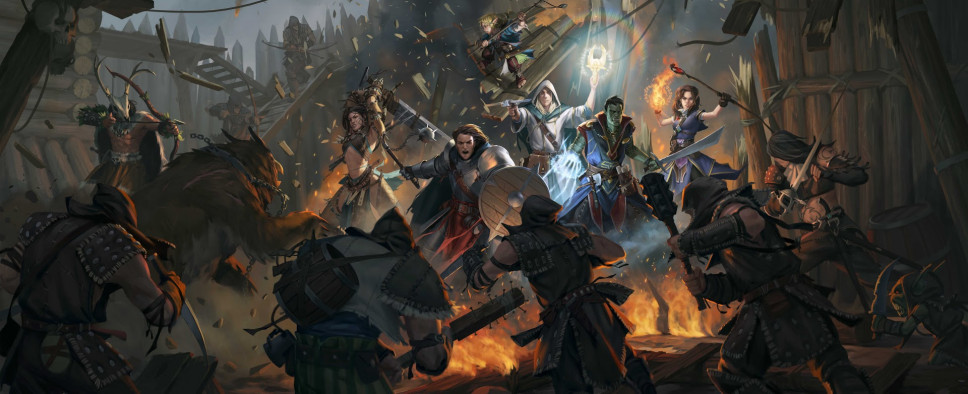Pathfinder: Kingmaker Update #23, $642,130 and Counting
-
Category: News ArchiveHits: 1576

The 23rd Kickstarter update for Pathfinder: Kingmaker announces that the project can now be supported through PayPal. Apart from this announcement, the update talks about all the skills Owlcat Games have currently planned for Kingmaker and describes their ideas on how to translate a pen and paper skill system into a CRPG.
Have a look:
Skills are an incredibly important part of most pen and paper RPGs, including Pathfinder. What are skills? Skills represent some of the most basic and yet most fundamental abilities your character possesses, like, for example, Perception – a skill to take note of details around you, to timely notice a deadly trap or to hear the muffled breath of a hidden adversary. Be it finding your way through the unknown lands or high court intrigues, be it searching for forbidden knowledge in the academy library, in a dusty tomb or a shady tavern – all of this is what skills are for. Without them, characters would be mere murderers. It is the existence of skills that allows them to resolve challenges and conflicts without resorting to bloodshed.
While it is a daunting, perhaps impossible, task to make skills just as useful in the CRPG as when playing Pathfinder on the table, it is not our goal to replace the original Pathfinder RPG, but rather to provide you with an experience similar to the fascinating atmosphere of pen and paper gaming. To do that we need to make the application of skills at least as frequent and at least as important as it is in pen and paper, if not as varied.
For our skill list, we decided to use our own approach to what is known to Pathfinder players out there as Consolidated Skills – a system where most skills from core Pathfinder are aggregated into bigger, wider skill groups. Our approach to this also includes our idea that skills should not only be used in dialogues but also in common gameplay and that these skills should be useful and applicable to the characters that archetypically should have those skills.
For this reason we, for example, made Lore - Nature, the archetypical skill of Rangers and Druids, to be based on Wisdom, and to include the knowledge about animals and insects, survival in the wilderness, handling of animals and tending to companions who were wounded or had succumbed to sickness. For that reason, we had made Lore - Religion to include knowledge about both Gods and their servants – outsiders, and plan to make it possible to use Lore - Religion to heal afflictions of the mind.
[...]
The skills of your character and your companions may be used in combat, to demoralize the enemy with a disheartening threat using your Persuasion or to lull the enemy into thinking that you are not a threat with a timely use of Trickery, only to then catch him flat-footed for your next attack. Skills may be used when camping, to forage for food using Lore - Nature or to guard your sleeping companions better by having high Perception.
And, of course, skills can be used in dialogues and other events. For example, you might need to use your Knowledge - World, to remember some information crucial for the current conversation. You can try to use your Perception to gauge whether the person you are talking to is trying to swindle you. Or why not try to swindle them yourself by using Bluff, a specific use category of your Persuasion skill? Use categories are a type of actions that can be performed with this skill, in which Pathfinder fans may find familiar names. Intimidate, Bluff and Diplomacy being use categories of Persuasion, and some character traits, feats and class features may give bonuses to certain use categories only. Some character traits, feats, class features, and other abilities may give bonuses to use categories instead of a broader consolidated skill - it makes sense for a half-orc to have a racial advantage in using Intimidate, and not to Diplomacy and Bluff.
In many cases, you may also improve your odds by carefully preparing for the challenges ahead. You can find items that can be used in a specific skill challenge, like an encyclopedia just about the subject you need to have Knowledge about. Or have more common tools at hand, like a roll of sturdy rope or a trusty shovel. Or you may acquire a fine and specialized set of instruments just for a particular skill, for example, a box of masterfully crafted lockpicks. And sometimes your decisions and actions will affect the difficulty and bonuses to your skill use, for instance, by either providing you with a helping hand of someone you have saved before or depriving you of it in your moment of need. And, for certain, you can use spells and potions to make yourself stronger or quicker for the task before you.

